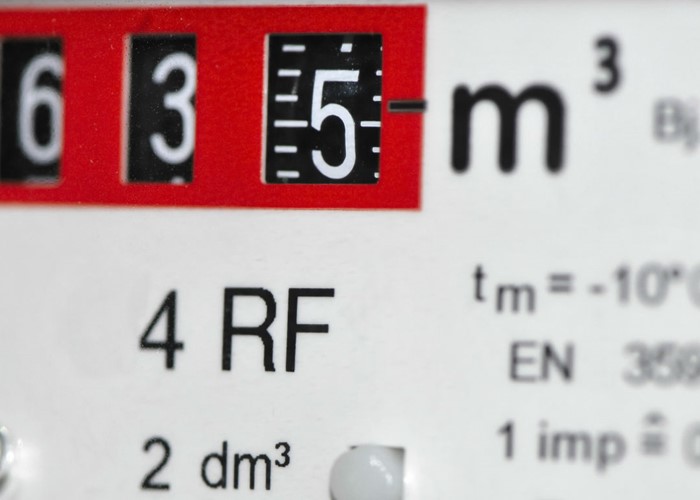Big energy hikes: now's the time to switch!

We show you that for brave customers energy is cheaper than it was two-and-a-half years ago, and remind you that waiting to switch costs you money.
Have gas and electricity prices really gone up? Is now the time to switch? After three price-rise announcements, including the latest increase from Scottish & Southern Energy, these are the questions I'm looking into today, with the help of my own database of energy prices going back to 2008.
Energy prices have come close to doubling over the past five years, even though wholesale prices (the price suppliers pay for the energy they sell on to us) are around a third lower than in 2008, according to Consumer Focus.
Consumer Focus is tirelessly supporting the consumer, and trying to get the regulator, OFGEM, to do something about a market that isn't working. It referred to a Select Committee of MPs' report, published this week, saying it “spelled out big flaws in energy”. Consumer Focus also reminded us of its open letter in December 2010, stating:
“We believe that energy tariffs are often structured in ways that are overly complex and can seem designed to confuse the average consumer. There are problems with dubious discounts that are hard to achieve. There are issues with the transparency of price rise notifications, termination charges and rollover contracts.”
Unfortunately for customers, Consumer Focus – one of the few bodies that doesn't mince words when campaigning for fair treatment for shoppers – is due to be axed to save costs. No consumer body has been announced to replace it.
Two-tier prices: one for regular switchers and one for idlers
Related how-to guide

Cut your energy bills
Fight back against rising energy prices with these top tips.
See the guideLooking at prices just before the first of the suppliers announced increases in June, the cheapest tariff for a typical user in Farnborough was around £1,040. Today, after three companies have announced changes, it's up just 3% to £1,070. So they're pretty much unchanged.
Compare this with early 2009, two-and-a-half years ago. The cheapest prices then were almost exactly the same, at £1,060. But many people who haven't switched since then will be paying £200 to £300 more today, just like users who never switch away from standard (aka expensive) tariffs. Without a doubt, those who don't switch, or who don't switch every year or so, will pay thousands more over the years.
It is mostly the big six suppliers that are guilty of all this behaviour. As a rule, I believe smaller suppliers have been treating customers more fairly. You can read more about small versus big suppliers in The sly energy tariff trap.
The danger of moving now
So with three suppliers having now announced changes and the new prices having been plugged into comparison tools and showing a negligible change to the cheapest tariffs, this once again supports the research I've carried out every year for the past few years.
That research consistently shows that by sitting on a more expensive tariff and waiting for all the energy suppliers to finish announcing changes actually costs you more money. At least, that has been the case over the past few years. I have written more about that in You're making the same mistake again and Energy suppliers manipulating customers. It also shows that changes to the cheapest tariffs seem to be completely unrelated to the major price change announcements, and they even appear to be affected by different forces.
Exit fees and discounts are a cause for concern
Related blog post
- Mark Vickery writes:
SSE becomes third energy supplier to hike prices
Now really is the last chance to get a cheap fixed energy prices before your bills sky rocket.
Read this post
Cheap tariffs inevitably come with exit fees, but ScottishPower will waive exit fees for people who want to escape its recent price increases, so long as you apply quickly enough. There have been reports of similar offers from many British Gas tariffs.
The main catch to beware of here is annual discounts. If you sign up to a tariff that pays you a discount for staying a customer for 12 months, you will lose that discount by switching earlier, which means you'll pay more than you thought when you first switched. All energy comparison tools include annual discounts when estimating how much you'll pay.
With lovemoney.com's tool you can easily see which tariffs have annual discounts by clicking on the tariff name in the results table. Potentially you'll want to avoid those tariffs if you are going to be a regular switcher, especially if the next most expensive tariff does not cost much more.
The regulator stutters
I talked with OFGEM to get confirmation of some recent reports that quoted the regulator as saying that suppliers are not actually allowed to charge you an exit fee if they increase prices and you decide to switch as a result. However, it is looking into those reports and it's taking its time to get back to me, which is a bit ominous.
I'll let you know in a comment at the bottom of this article what OFGEM considers the position to be, if and when it gets back to me.
More: compare gas and electricity tariffs in your area | How to get poor quick | The property market's worst-case scenario
Comments
Be the first to comment
Do you want to comment on this article? You need to be signed in for this feature